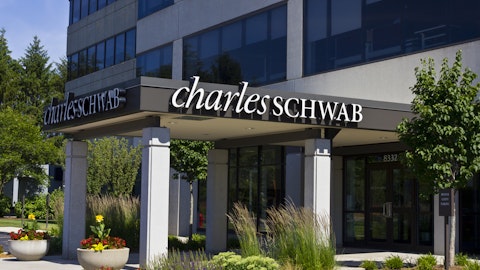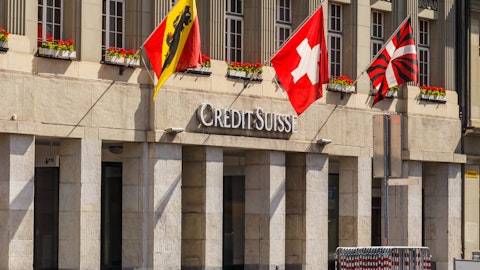Fiduciary Management Inc. (FMI), an independent money management firm, released its first quarter 2023 investor letter. A copy of the same can be downloaded here. A global banking crisis and severe financial market volatility affected the market in the first quarter of 2023. The FMI Large Cap Strategy gained 4.0% (net) in the first quarter compared to a 7.50% increase in the S&P 500 Index and a 0.93% gain in the iShares Russell 1000 Value ETF. The FMI Small Cap Strategy gained 7.6% (net) compared to a 2.74% gain in the Russell 2000 Index and a 0.66% decline in the Russell 2000 Value Index in the same period. The FMI All Cap Equity gained 5.1% (net) compared to 7.07% for the iShares Russell 3000 ETF and the FMI International Strategies gained 9.8% (net) on a currency-hedged basis and 10.6% (net) on a currency unhedged basis in the initial quarter of 2023. In addition, please check the fund’s top five holdings to know its best picks in 2023.
FMI highlighted stocks like The Charles Schwab Corporation (NYSE:SCHW) in the first quarter 2023 investor letter. Headquartered in Westlake, Texas, The Charles Schwab Corporation (NYSE:SCHW) is a savings and loan holding company. On April 11, 2023, The Charles Schwab Corporation (NYSE:SCHW) stock closed at $51.71 per share. One-month return of The Charles Schwab Corporation (NYSE:SCHW) was -13.17%, and its shares lost 38.32% of their value over the last 52 weeks. The Charles Schwab Corporation (NYSE:SCHW) has a market capitalization of $94.045 billion.
FMI made the following comment about The Charles Schwab Corporation (NYSE:SCHW) in its Q1 2023 investor letter:
“Our two most impacted holdings during this recent crisis were Zions Bancorp. and discount broker The Charles Schwab Corporation (NYSE:SCHW). We believe both have sticky deposit bases, best-in-class management teams, conservative balance sheets, and attractive valuations. In both cases, outside of absolute contagion/panic resulting in a run on their deposits (a very low probability tail risk), we view the impact on the businesses as more of an “earnings” event, not a “balance sheet” event. Zions and Schwab got caught up in the contagious fear around SVB’s collapse due to some optical similarities between their balance sheets (namely bonds carried at mark-to-market losses), and Zions being a West Coast regional bank. We believe the similarities largely end there. Zions has a much more diverse deposit base than SVB. We estimate that half of Zions’ deposit base are small and medium-sized business operating deposits, which have historically been quite stable and a competitive advantage. Nearly half of Zions’ deposits are FDIC-insured, and the bank has ample liquidity to meet outflows without selling its securities portfolio. Similarly, Schwab’s retail deposit base is very sticky. Over 80% of their customers’ cash is FDIC-insured, and the cash is spread across approximately 34 million brokerage accounts (average ~$10,000 in bank cash per account). Schwab has more balance sheet liquidity than deposits. In both cases, there appears to be a low risk of correlation among their respective client bases. Although there will likely be some profit headwinds that stem from this crisis, we viewed the large declines in these shares as overly punitive, and thus believe the risk/reward for each is increasingly attractive. We have added to both positions.”

The Charles Schwab Corporation (NYSE:SCHW) is not on our list of 30 Most Popular Stocks Among Hedge Funds. As per our database, 74 hedge fund portfolios held The Charles Schwab Corporation (NYSE:SCHW) at the end of the fourth quarter which was 75 in the previous quarter.
We discussed The Charles Schwab Corporation (NYSE:SCHW) in another article and shared Oakmark Select Fund’s views on the company in the previous quarter. In addition, please check out our hedge fund investor letters Q1 2023 page for more investor letters from hedge funds and other leading investors.
Suggested Articles:
- 20 Best Places to Retire in Mexico
- 30 Most Dangerous Cities in the World
- 10 Best EV Battery Stocks Under $10
Disclosure: None. This article is originally published at Insider Monkey.




